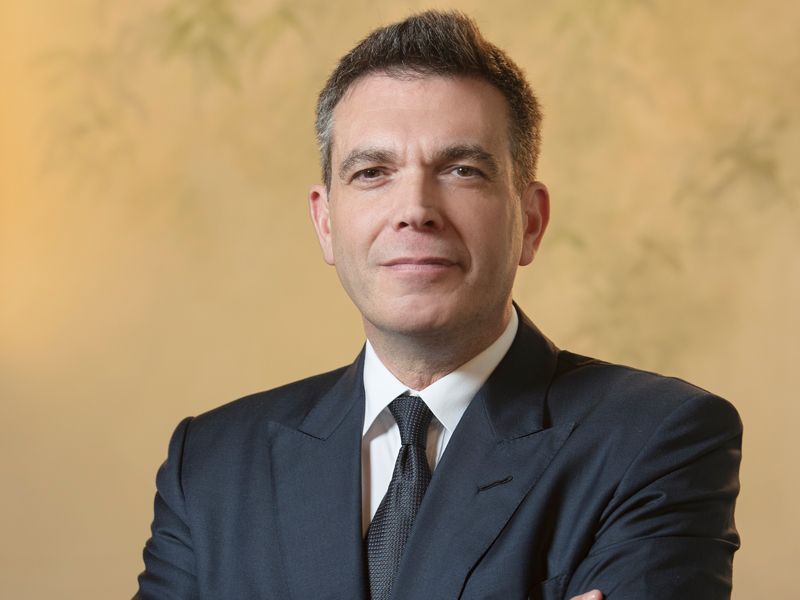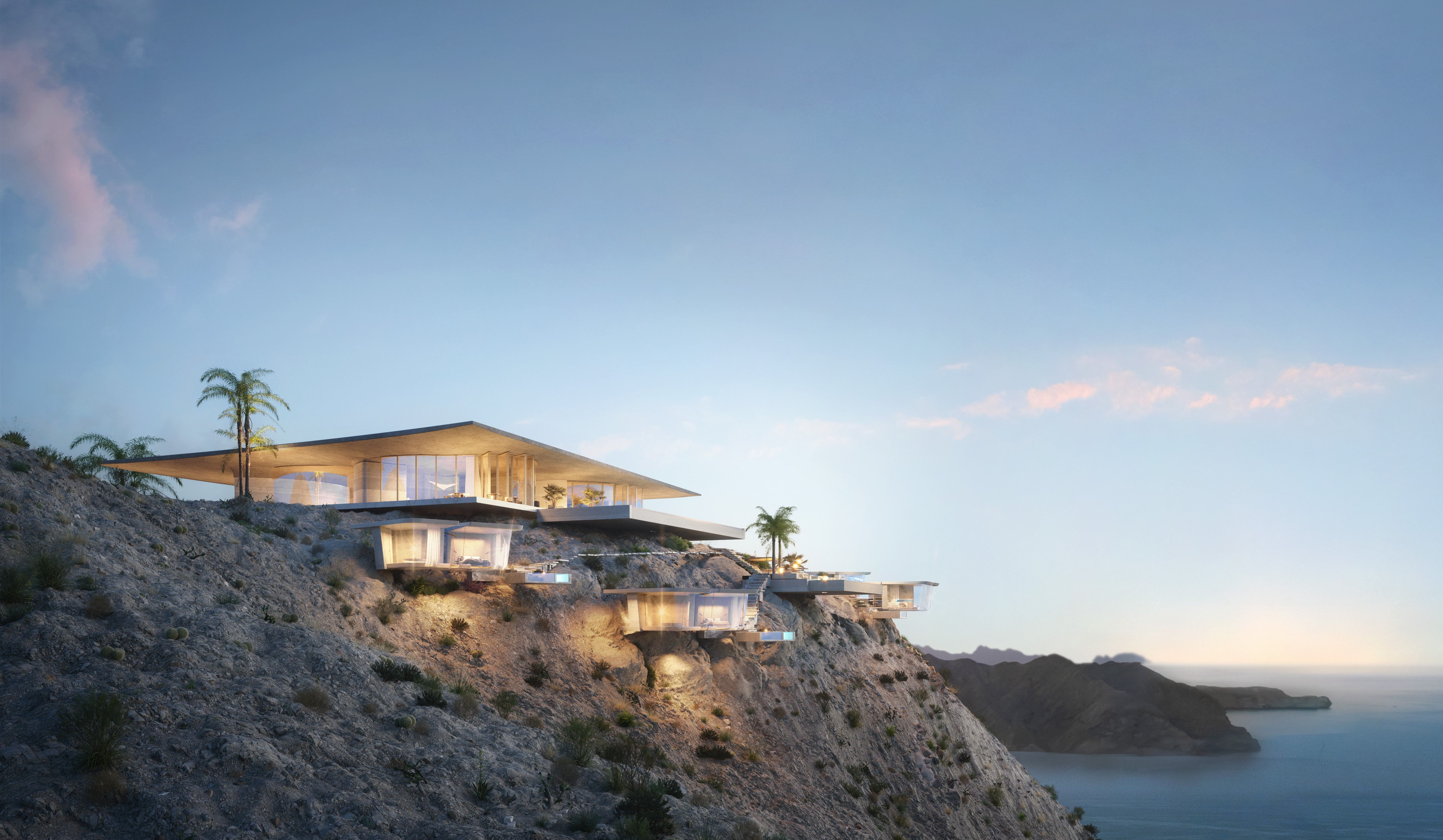
Q+A: Dar Global’s CEO on targeting “global citizens” for luxury properties
18 Dec 2023 07:45 GMT | by Franciszek Bryk
Ziad El Chaar discusses the rapid growth of the specialist resi developer and future hotelier
Dar Global, the international arm of Saudi Arabia’s Dar Al Arkan Real Estate Development, is targeting internationally mobile high-net-worth and ultra-high-net-worth individuals seeking to buy vacation homes.
Following its listing on the London Stock Exchange earlier this year, it is also expanding its portfolio with luxury hotels. An AED750m (€186m) loan from Emirates NBD secured by DarGlobal in May will power its hotel acquisitions, with a hotel co- branded with Dolce & Gabbana under way in the Maldives.
Eleven residential developments, with a total volume of around $4.8bn, are spread across six countries: Spain, UAE, Oman, Qatar, the UK and Bosnia and Herzegovina. Brands Dar Global has collaborated with on the design of its residential units include Pagani, Missoni and Lamborghini.
Ziad El Chaar, chief executive of Dar Global, spoke to React News about the company’s specialisation in the luxury residential sector, co-branding of properties and future hospitality acquisitions.
Why did Dar Global choose to specialise in the luxury housing sector?
Dar Global is unique in this respect. Our purpose is to meet the growing demand from affluent international customers where there is a relatively new trend of people buying second homes, vacation homes and, especially after the pandemic, second primary homes. Such properties are a luxury category by default. If you can afford to buy a second or vacation home, it is a luxury product.
“We are not just a real estate developer. We are also a lifestyle, entertainment and investment company”
We believe that this sector will continue to grow. What we offer our customers is the highly desirable limited edition of luxury housing – real estate co-branded with the likes of Lamborghini, Pagani and Dolce & Gabbana. This sector is still new; it’s only 10 to 15 years old and has a long way to go.
Who are the target buyers?
We call our target buyers “global citizens” – people who want to have a second or vacation home in prime locations around the world, and that is what we want to supply them with.
However, luxury in this sense has broad price range. Clients might want to buy a property in a golf course community in Muscat for around $450,000 or they might want to buy a Hyde Park penthouse for £40m, or they might want to spend anything in between.
“Second home and vacation home customers do not rely on mortgages to buy – they are affluent, international cash buyers who are less impacted by the global, or domestic, economic and political environment”
We have been able to sell to clients from as many as 89 nationalities so far. This shows how diverse the sector is and this number will only increase as we launch more projects in London. Citizens of so many countries are looking at our projects because we are building in global cities and because we collaborate with brands that appeal too many of them.
So these collaborations play a central role in your strategy?
We are not just a real estate developer. We are also a lifestyle, entertainment and investment company. The real estate is our channel to sell the lifestyle aspect of Dar Global.
From the perspective of profitability, branded and non- branded properties do not differ much. We earn a bit more for the former, but not enough to match the entire difference in the price, because the technical specifications are better, the design is more demanding and there are fees for the brands.
But the sales pace is much faster. People know that if they don’t buy now, they are going to lose the opportunity.
Anything that is limited in supply and high in demand will always create for a very big return on investment. The demand has been phenomenal.
How has getting listed on the London Stock Exchange impacted Dar Global?
We were two years old when we listed. Usually, a company that is two years old does not do that. Companies get listed when they are more stable and mature. We were still away from our targets and valuation, but decided to list because we needed a vehicle for growth.
If you are not a domestic developer in a country, you need to do JVs, acquisitions and public-private partnerships with local governments. You need a corporate structure that is international and transparent; one that everybody understands and is at ease in dealing with.
“There are no indications telling us to change our strategy. We are still a young company”
Our London listing gave us that enhanced profile. As a result, we have had more than 20 JVs under discussion. We have also been looking at many funding opportunities that were not available to us as a private company.
Where should we expect your new residential projects?
Investment opportunities in the luxury residential sector exist mainly in international cities. We only target cities where there are more than 40 nationalities buying properties. A prime example is London, the biggest international city in the world.
We targeted in our listing prospectus that by 2025 we would have 50% of our revenue generated in Europe and 50% in the GCC [Gulf Cooperation Council].
We have a huge project in Oman, five projects in Dubai and a big one in Doha. In Europe, we have engaged in three ambitious projects in Spain, but would like to grow more in London. We are also going to enter Greece and are in discussions with potential partners in Athens. Morocco is another country that we are looking at because Tangier and Marrakech are heavily international destinations.

Saudi Arabia is the latest market we have entered due to the potential for substantial and growing demand from international customers. The Kingdom has an ambitious plan to diversify its economy and grow its population as part of its Vision 2030 and is undertaking giga projects in the real estate and hospitality sectors on an unprecedented scale. These will attract the affluent customers we serve, and we are already evaluating several promising opportunities.
What brought you to Bosnia and Herzegovina?
Historically, many people from the GCC, especially from Kuwait, the UAE and Saudi Arabia had spent their summers in Sarajevo and the surrounding area with cities such as Tuzla.
Many of them began buying properties there as vacation homes. We thought this would be a great location for properties to sell to our historical clients – Saudis, Kuwaitis, Qataris and Emiratis.
Has the $204m loan you secured from Emirates NBD been fully allocated?
It hasn’t yet. We think that in the next six months we are going to see a lot of opportunities, especially in London, and this facility will allow us to capitalise on them.
How does hospitality investment fit into Dar Global’s strategy?
We are not a hospitality company per se. Our strategy is to develop selected hotel opportunities to enhance the residential portfolio. We are working on the design of an exciting luxury hospitality concept with Dolce & Gabbana in the Maldives, which will be the brand’s first ever hotel.
“Investment opportunities in the luxury residential sector exist mainly in international cities. We only target cities where there are more than 40 nationalities buying properties”
The average room rate in Maldives is getting stronger and stronger and there is growing demand for new resorts. Domenico Dolce and Stefano Gabbana are putting a lot of effort in coming up with the themes and designs for this project.
Are you planning to develop your future hotels or to buy existing buildings?
Today, if you want to grow in Spain – in Madrid, for example – you will see that there is no land available. You need to buy old properties and refurbish them. It is the case in London too.
Are you not afraid that labour shortage and increasing labour costs in Europe will impact your future hospitality assets?
When you are building something, especially in hospitality at the upper end of the market and you are having some of the best rates in the market, there is no problem in paying a little bit more for your staff. We don’t expect to have trouble attracting people.
How have interest rate hikes and high inflation in Europe affected Dar Global?
Every real estate developer has been affected because our business relies on financing. Our funding rates have doubled in the last 18 months, so our costs have increased. But we have not been affected from a sales perspective.
Second home and vacation home customers do not rely on mortgages to buy – they are affluent, international cash buyers who are less impacted by the global, or domestic, economic and political environment.

Dar Global’s AIDA, a residential development project in Muscat, Oman
Do you find it easier to access financing in the GCC or in Europe?
Coming from the GCC, it has been easier for us to access financing in that region because we are not as well-known in Europe yet. Once we start building and have more of a track record here, it will be the same.
Is your overall strategy going to change in 2024?
There are no indications telling us to change our strategy. We are still a young company. We do tweak the product every time we launch based on feedback from our clients. Our strategy will continue to focus on providing luxury second homes and vacation homes, providing our customers with cross-border investment opportunities in the most desirable places in the world.
Are you planning to continue to collaborate with design brands in new projects?
Our customers want something that not many others can get: limited edition products such as jewellery, watches, wine or bags. We are presenting the real estate version of that. People want to have that exclusivity.
ALL ARTICLES